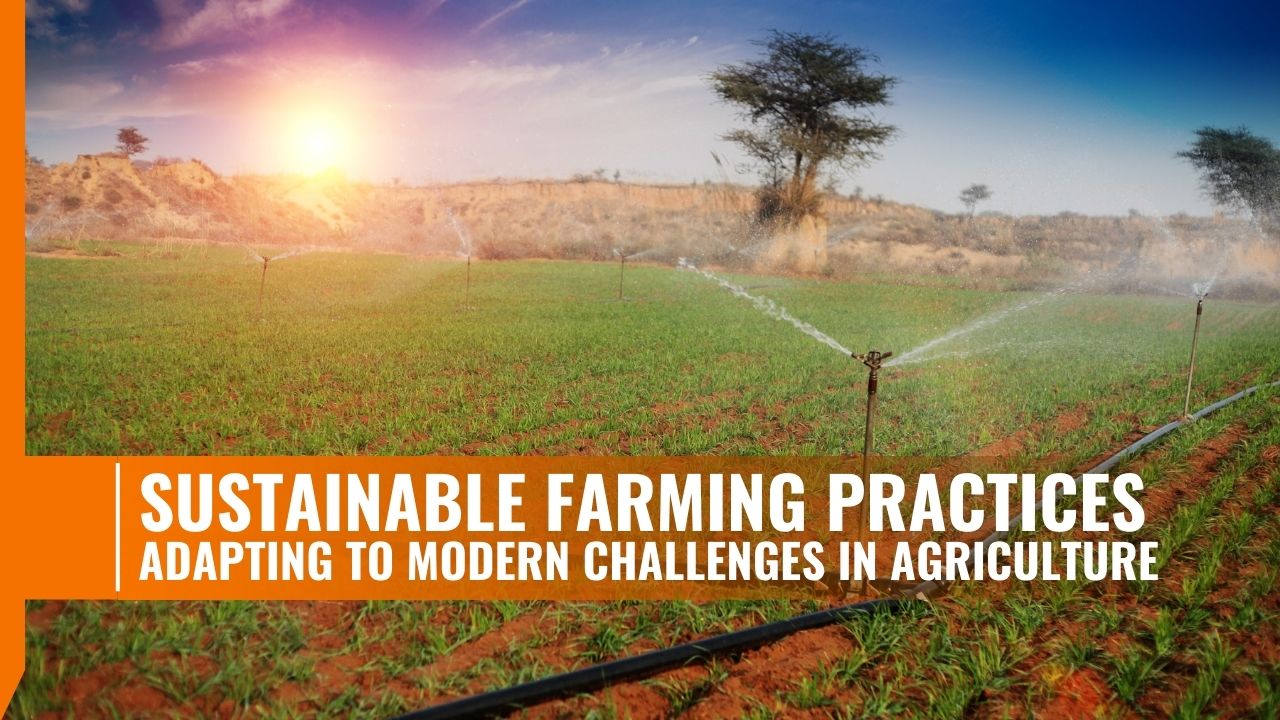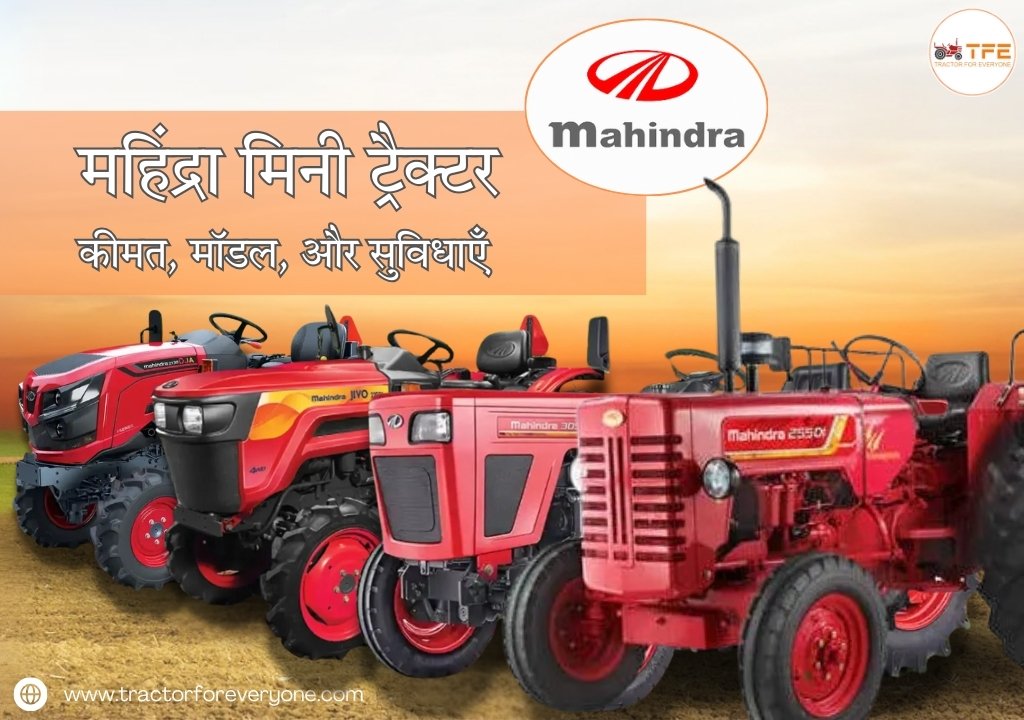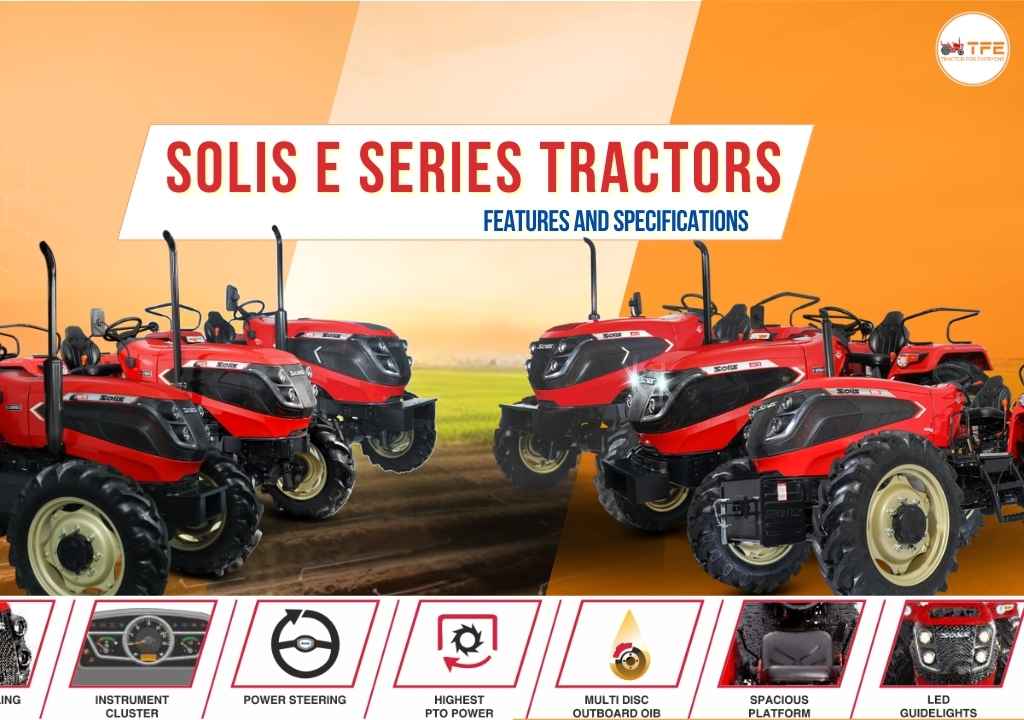Best Used Car, Services, Auto Parts, Rent Car Available for Buy and Sell Near By Go Ahead
- Swaraj Price 2025: Latest Swaraj Tractor Price List and On-Road Rates in India
- Best Kubota Mini Tractors for Orchard and Vineyard Farming
- महिंद्रा मिनी ट्रैक्टर - कीमत, मॉडल, और सुविधाएँ
- Swaraj 855 FE Tractor Review 2025 Features, Price and Performance Explained
- Best Tractors in India 2025: Top 10 Picks for Every Farm Size
- महाराष्ट्र फार्मर आयडी: ऑनलाइन नोंदणी प्रक्रिया, कागदपत्रे आणि फायदे
- Sonalika Tractor Price 2025 Complete List of Models, Series and Latest Offers
- Swaraj Tractor Price List 2025: Best Tractors for Small, Medium & Large Farms
- Swaraj 744 FE Price, Features & On-Road Cost Explained for 2025
- Mahindra Tractors Price 2025: Complete List, Series-Wise Comparison and Best Models

Sustainable Farming Practices: Adapting to Modern Challenges in Agriculture
Agriculture is the backbone of India, providing livelihoods to millions and ensuring food security for the nation. However, farming is becoming increasingly challenging due to changing environmental conditions, resource scarcity, and the need to produce more with less.
Sustainable farming practices offer practical solutions to these challenges, helping farmers protect their land and produce healthy crops for future generations. This blog explores common agricultural practices, challenges faced by farmers, and innovative solutions that can transform farming into a more sustainable and productive venture.
Common Agricultural Practices: Traditional and Evolving
Indian agriculture has a rich history of diverse farming methods. Many traditional practices have stood the test of time, but evolving challenges have necessitated modern adaptations.
Traditional Practices
Crop Rotation
Farmers traditionally rotated crops to maintain soil fertility and reduce the risk of pests and diseases. For instance, planting legumes after cereals helps replenish nitrogen in the soil.
Mixed Cropping
Growing different crops on the same land reduced the risk of total crop failure and ensured a steady supply of food.
Rainfed Farming
In many regions, farming relied on monsoon rains for irrigation, particularly in areas where water resources were limited.
Modern Adaptations
Today, these traditional methods are evolving with advancements in technology and the need for sustainability:
Integrated Farming Systems: Combining crops, livestock, and fisheries to optimize resources and diversify income.
Soil Health Cards: Helping farmers understand soil conditions and choose suitable crops and fertilizers.
Irrigation Improvements: Transitioning from rainfed farming to micro-irrigation systems like drip irrigation to conserve water.
Challenges Faced by Farmers
Indian farmers face several obstacles that make sustainable farming a necessity. Addressing these challenges is key to ensuring long-term productivity and environmental health.
- Soil Erosion
Repeated use of chemical fertilizers and deforestation have degraded the soil, leading to erosion. Poor soil quality directly impacts crop yields.
- Water Scarcity
Agriculture consumes around 70% of India’s freshwater resources, and many regions face acute water shortages. Erratic rainfall patterns due to climate change further worsen the situation.
- Access to High-Quality Seeds
Farmers often struggle to access certified seeds that can withstand pests and adverse weather, leading to lower productivity.
- Pest and Disease Outbreaks
The overuse of pesticides has led to resistant pests, making it harder to protect crops. Emerging diseases further threaten crop health.
- Economic Pressures
Low market prices, high input costs, and limited access to credit make farming financially challenging, particularly for small-scale farmers.
Innovative Solutions for Sustainable Farming
Sustainable farming focuses on balancing productivity with environmental care, ensuring that resources remain viable for future generations. Several innovative solutions are making this balance possible:
- Precision Farming
Precision farming uses advanced technologies like GPS, sensors, and drones to gather real-time data on soil health, crop growth, and weather conditions. This helps farmers:
Apply water and fertilizers only where needed, reducing waste.
Monitor crops for early signs of pests or diseases.
Maximize yields while minimizing environmental impact.
- Organic Farming
Organic farming avoids synthetic chemicals and focuses on natural methods to grow crops. This approach:
Promotes soil health by using compost and organic manure.
Enhances biodiversity by fostering natural pest predators.
Offers better market opportunities for farmers, as organic products are in high demand.
- Use of Renewable Energy Sources
Farmers are adopting renewable energy to power their farms sustainably. Examples include:
Solar Pumps: Providing reliable irrigation without relying on costly diesel or electricity.
Biogas Plants: Turning farm waste into clean energy for cooking and heating.
- Agroforestry
This practice involves growing trees alongside crops to improve soil quality, provide shade, and increase biodiversity. Trees also act as windbreaks, reducing soil erosion.
- Water Conservation Techniques
Efficient water management is critical for sustainable farming. Key techniques include:
Drip Irrigation: Directs water to the plant roots, reducing evaporation.
Rainwater Harvesting: Collects and stores rainwater for irrigation during dry spells.
Check Dams: Helps recharge groundwater levels and ensures year-round water availability.
- Seed Banks and Improved Varieties
Community seed banks help preserve indigenous seed varieties, while research institutes develop high-yield, pest-resistant seeds suited to local climates. Farmers can choose seeds that ensure better resilience and productivity.
Also Read: Ley Farming in India: A Sustainable Practice for Healthier Farms
Benefits of Sustainable Farming
Sustainable farming practices offer multiple advantages for farmers and the environment:
For Farmers:
- Higher Yields: Precision tools and high-quality seeds lead to better harvests.
- Cost Savings: Efficient resource use reduces input costs.
- Market Opportunities: Organic and sustainably grown produce fetch higher prices.
For the Environment:
- Soil Health: Organic manure and reduced chemical use prevent soil degradation.
- Water Conservation: Efficient irrigation methods ensure sustainable water use.
- Biodiversity: Agroforestry and organic farming enhance ecosystems.
Moving Towards a Sustainable Future
The adoption of sustainable farming practices is not just a choice but a necessity for Indian agriculture. Farmers need support to make this transition, including:
Government Initiatives
Schemes like the Pradhan Mantri Krishi Sinchayee Yojana (PMKSY) and the Sub-Mission on Agricultural Mechanization (SMAM) promote efficient resource use and access to modern tools.
Farmer Education
Workshops, training sessions, and digital platforms can help farmers learn about sustainable methods and modern technologies.
Financial Support
Subsidies, loans, and insurance schemes make it easier for farmers to adopt new practices and recover from losses.
Collaboration
Private sector companies, NGOs, and agricultural research institutions must work together to provide affordable and accessible solutions.
Conclusion
Sustainable farming practices hold the key to overcoming the challenges faced by Indian farmers. By combining traditional knowledge with modern innovations, farmers can protect their resources, improve productivity, and secure a better future.
As a farmer, consider adopting methods like precision farming, organic practices, and renewable energy. Take small but steady steps towards sustainability, and explore government schemes and community support to ease the transition. Sustainable farming is not just about growing crops—it’s about nurturing the land for generations to come.
With the right tools, knowledge, and determination, you can be part of the agricultural revolution that ensures prosperity and sustainability for all.
Write a Comment
Popular Blogs View All
-

Swaraj Price 2025: Latest Swaraj Tractor Price List and On-Road Rates in India
07/24/2025, POSTED BY ADMIN -

Best Kubota Mini Tractors for Orchard and Vineyard Farming
01/13/2026, POSTED BY ADMIN -

महिंद्रा मिनी ट्रैक्टर - कीमत, मॉडल, और सुविधाएँ
02/18/2025, POSTED BY ADMIN
Popular Video View All
-

महाराष्ट्रात Second Hand Tractors ची उत्तम संधी! तुमच्या बजेटमध्ये, विश्वासार्ह ट्रॅक्टर मिळवा!
12/16/2025, POSTED BY ADMIN -

TFE Reaper Machine Working | Full Multi-Crop Cutting Process!
12/16/2025, POSTED BY ADMIN -

5 Things You Need to Know Before Buying a Solis E Series Tractor
05/17/2025, POSTED BY ADMIN

